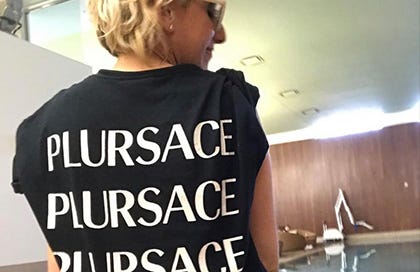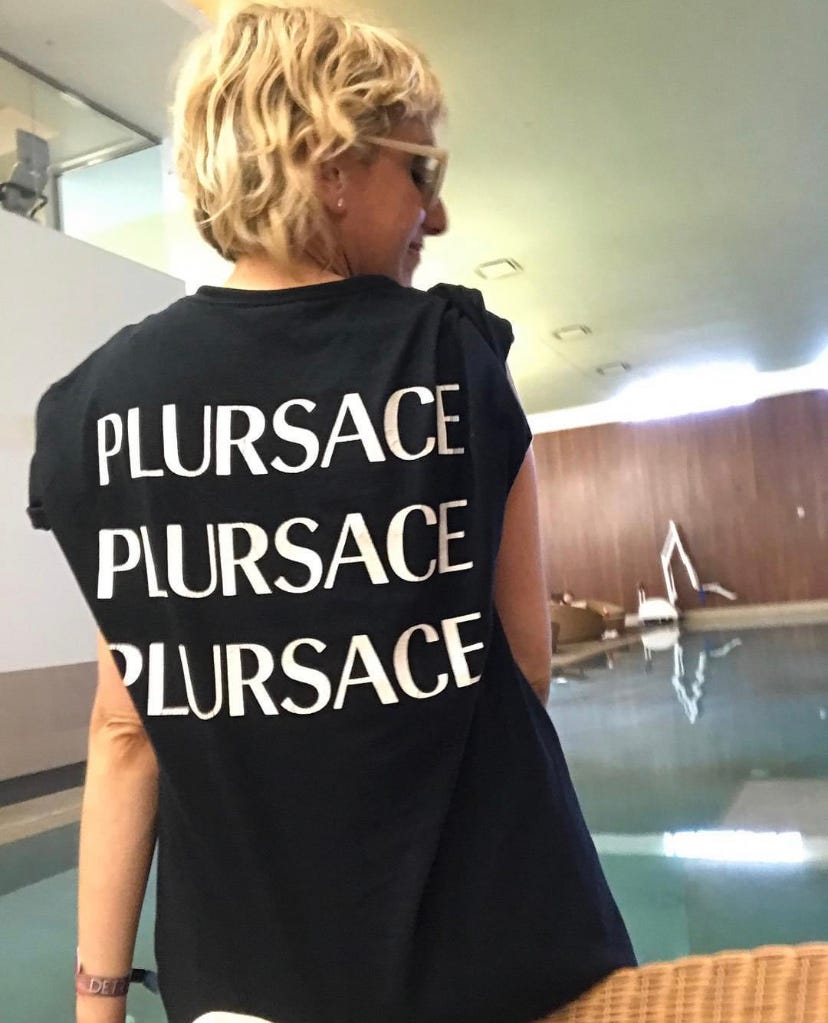The word “community” rolls off our tongues frequently, but what does it actually mean? These days, its meaning has been diluted by the broadness of its use- kinda like “sorry”, “love you” or “rave”. So exactly what creates a community? On a macro level it defines people from the rest of the pack. There’s of course the obvious- race, sexuality, values, ethics, religion, nationality, gender, etc, etc. The possibilities and categories, especially when combined seem to be infinite.
A word with such depth and many connotations deserves to be examined through a magnifying glass. What does community mean to you personally? And what does it mean to us collectively? Especially for those part of super special subcultures sewn together through sound waves; which transcend, even if only briefly, beyond the things that distinguish us.
Music. We’re a community of music lovers, freaks, geeks and obsessors. Beats, harmonies and melodies hit differently than any other medium. And while genres can whittle us into subcultures, a lot remains which unites us, allowing music to impact you in a way that nothing else does. Really think about it. With the 7.8 billion earthlings on this planet, we’re extremely fortunate to be in one that’s rife with emotion and evolution. Even with my most objective thinking cap on- ours is really that precious.
It’s disheartening when those brought together by unique circum-chances can so easily be divided. And these schism’s can easily be exacerbated when folks shout into the ether on digital pedestals; judging with impunity. Often doing anything and everything aside from leaving space for people we once considered so similar. Social media turns up the differences dial on this echo chamber into an infinite void. This facsimile of community divides as rapidly as those worms which appear when it rains. Community is meant to do the diametric opposite- it’s meant to connect.
It’s been over three decades since “PLUR” was coined. Peace, love, unity, respect. I never took the term quite seriously. It was just too idealistic for my pragmatic nature. A fa la la land of unattainable make believe. However in retrospect, there’s a beauty in the utopian vision of those early days. Of course, ecstasy was a major factor, but so was the optimistic belief that this new subculture could influence greater society
It’s pretty clear that, at least at this point in time, PLUR is a long lost pipe dream gone awry. At least as applied to the broader dance music scenes. Regardless of so many people’s good intentions, the torrential flood of human nature, time and technology carved a distinctly different path. Which is why for the oh so trying times of today, I propose a new definition for PLUR. An attainable vision that we can aspire to.
Proper. Listening. Understanding. Rave.
Proper: Respect and consideration for everyone across the board. Be aware and take personal accountability for your actions- especially in shared spaces.
Listening: Acutely listen- really hear each other out, especially when it comes to our differences. That includes friends, acquaintances and anyone not yet in those categories. And of course, keep music at the nucleus of the party.
Understanding: No one knows it all. And we each enter these spaces with unique experiences and perspectives. Use the opportunity to challenge yourself through empathy and learning.
Rave: Because music and parties are why we’re sharing our dancefloors.
Consideration is key for my modern take on PLUR. Because being in a community means acknowledging that all voices are important. Regardless of how big or small. And whether you agree or disagree. Because even a quick glance at history makes it clear that the majority, while they can be, is not always “right.” Community can easily become mob rule where social acceptance is the conduit for a runaway train. The magic really happens when we have dialogue- not just wait for our turn to talk.
It’s incredibly important to put yourself in others’ proverbial shoes. Regardless of how ugly, old-fashioned, smelly or small. They’re never going to perfectly fit the form of your feet. But the exercise of doing so alone fosters better understanding as to how people’s perspectives come to take their shape. Whether it be due to genetics, circumstance, bunions or foot binding.
Postulating as to how someone might be saying what they’re saying or doing what they’re doing builds tolerance that can lead to communication and (fingers crossed) ultimately progress. And that connection is made possible through the commonalities that tied you together in the first place. And what’s the point of boxing yourself into a corner which only reflects your beliefs back to you?
Two things can be true at the same time. For instance, one person's treasured track is another person’s trash. Taking time to think or learn how people arrived where they are, doesn’t need to alter your beliefs. Not one iota. For instance, I don’t have to like BPM wylin’ to respect and understand why other people might. Another example is bottle service. I’m not a fan. I just don’t get it. For me it reeks of capitalistic exclusivity, and it makes zero sense. Why pay for a bottle of vodka at 10x its cost AND you get shitty mixers AND have to make your own drinks. Or maybe, it’s just their proclivity. To each their own after all.
If you reflect on the range of exposure one might have and it’s easy to see how someone who you perceived to be in a similar headspace could land at such a different conclusion. Remember, your friends ethos and values very well may still be similar. You just view the scenario differently because your brain’s processors vary wildly. One might be in an IBM laptop and the other a Mac. President Obama famously said, “what binds us together will always be more powerful than what drives us apart.” And I thought we were divided then- and that was over a decade ago. Today seems like a totally different dimension- so how are we going to handle it?
Our community largely exists on the dancefloor. The places we come to release, rebuild and express ourselves. So perhaps further consider how you interpret interactions. How do you have an open exchange of ideas at the pre-ki, afters, and in everyday life when verbal or written communication isn’t involved?
We can probably agree on one thing- we’re never always going to all agree. And trust, I’m thankful for the diversity of opinions. It’s what pushes culture out of the status quo, hopefully facilitating broader positive change. And it makes us stronger.





